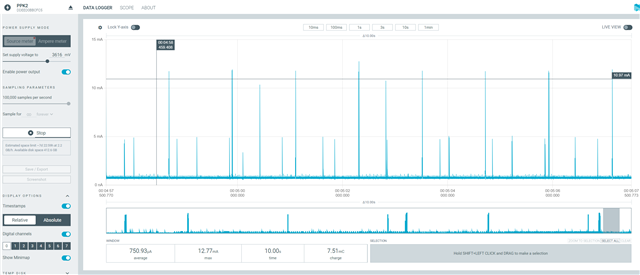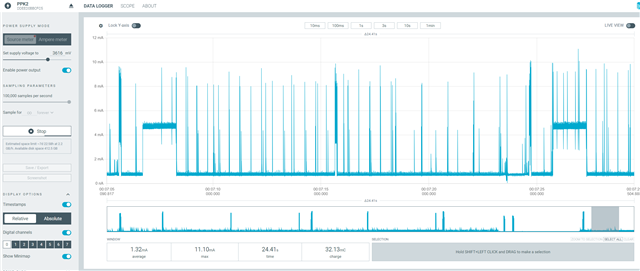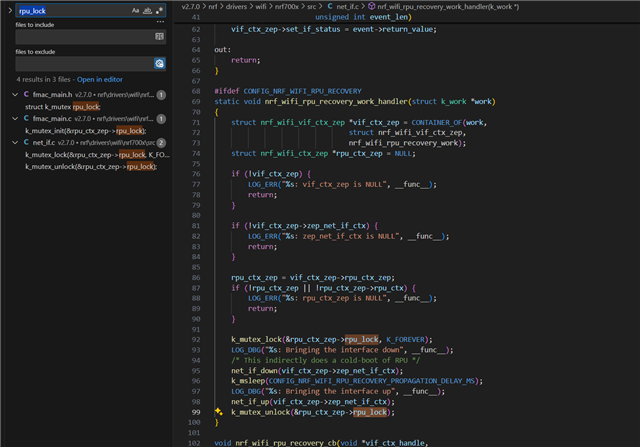Hi,
As the title states, after a while, the nRF7002 fails to connect SSID after a while. It happens either we perform net_if_up/down or not. I suspect the nRF7002 to be in a bad state because when I measure the consumption with the ppk2, I have around 750µA instead of around 80µA idle on my system, or ~150µA when interface is Up but IDLE

During connect attemp, I have several mA spikes, but not even close to the ~200mA spikes and ~60mA floor I am supposed to have when connecting/transmitting.

I am sorry I did not captured the trace as I wasn't expecting to post the issue here at first. As it happend after several days of working, I did not managed to attach a debug session to it yet.
Maybe you have some insight on what is going on, or what could be the issue.
Thank you for your help




